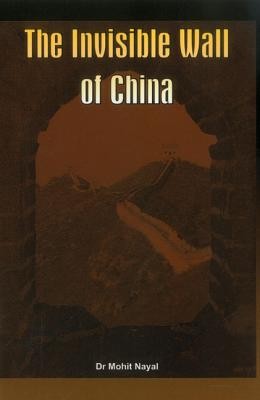
- We will send in 10–14 business days.
- Author: Mohit Nayal
- Publisher: VIJ BOOKS INDIA
- Year: 2012
- Pages: 301
- ISBN-10: 9381411417
- ISBN-13: 9789381411414
- Format: 16.3 x 23.6 x 2.8 cm, kieti viršeliai
- Language: English
- SAVE -10% with code: EXTRA
Reviews
Description
The disintegration of Soviet Union in 1991, led to five new countries gaining independence in Central Asia. The Muslims, a predominant majority in the region, had faced religious suppression under the rule of the communist. Thus, began an era where Islam was practiced with larger freedom. However, the governance of most of these states was with the autocratic leaders who had grown under the influence of communism. Therefore, it was but natural for them to soon impose religious restrictions. This close tussle in almost all these newly raised states, led to emergence of some radical groups. Over the years, the influence of such groups has spread to the extent of posing a threat to the stability of country like China. A foothold for radical groups in China is a possibility as its western province of Xinjiang has historical links with Central Asia and was part of Turkistan. Today Xinjiang due to its ethnic violence between the Uyghur Muslims and the Han Chinese is acknowledged to be quite volatile. The link of Uyghur's with Central Asia has further compounded China problem. Apart from the extremists, China is also concerned regarding the growing American presence within the region of Central Asia. To negate the American influence and restrain any turbulence on its western province supported by the extremist of Central Asia, there is a need for China to review its external and internal policies which will steer it towards a more politically and economically stable nation. Failing to addresses such simmering issues the nation will be trapped within the folds of 'THE INVISIBLE WALL OF CHINA'.
EXTRA 10 % discount with code: EXTRA
The promotion ends in 21d.22:01:46
The discount code is valid when purchasing from 10 €. Discounts do not stack.
- Author: Mohit Nayal
- Publisher: VIJ BOOKS INDIA
- Year: 2012
- Pages: 301
- ISBN-10: 9381411417
- ISBN-13: 9789381411414
- Format: 16.3 x 23.6 x 2.8 cm, kieti viršeliai
- Language: English English
The disintegration of Soviet Union in 1991, led to five new countries gaining independence in Central Asia. The Muslims, a predominant majority in the region, had faced religious suppression under the rule of the communist. Thus, began an era where Islam was practiced with larger freedom. However, the governance of most of these states was with the autocratic leaders who had grown under the influence of communism. Therefore, it was but natural for them to soon impose religious restrictions. This close tussle in almost all these newly raised states, led to emergence of some radical groups. Over the years, the influence of such groups has spread to the extent of posing a threat to the stability of country like China. A foothold for radical groups in China is a possibility as its western province of Xinjiang has historical links with Central Asia and was part of Turkistan. Today Xinjiang due to its ethnic violence between the Uyghur Muslims and the Han Chinese is acknowledged to be quite volatile. The link of Uyghur's with Central Asia has further compounded China problem. Apart from the extremists, China is also concerned regarding the growing American presence within the region of Central Asia. To negate the American influence and restrain any turbulence on its western province supported by the extremist of Central Asia, there is a need for China to review its external and internal policies which will steer it towards a more politically and economically stable nation. Failing to addresses such simmering issues the nation will be trapped within the folds of 'THE INVISIBLE WALL OF CHINA'.


Reviews